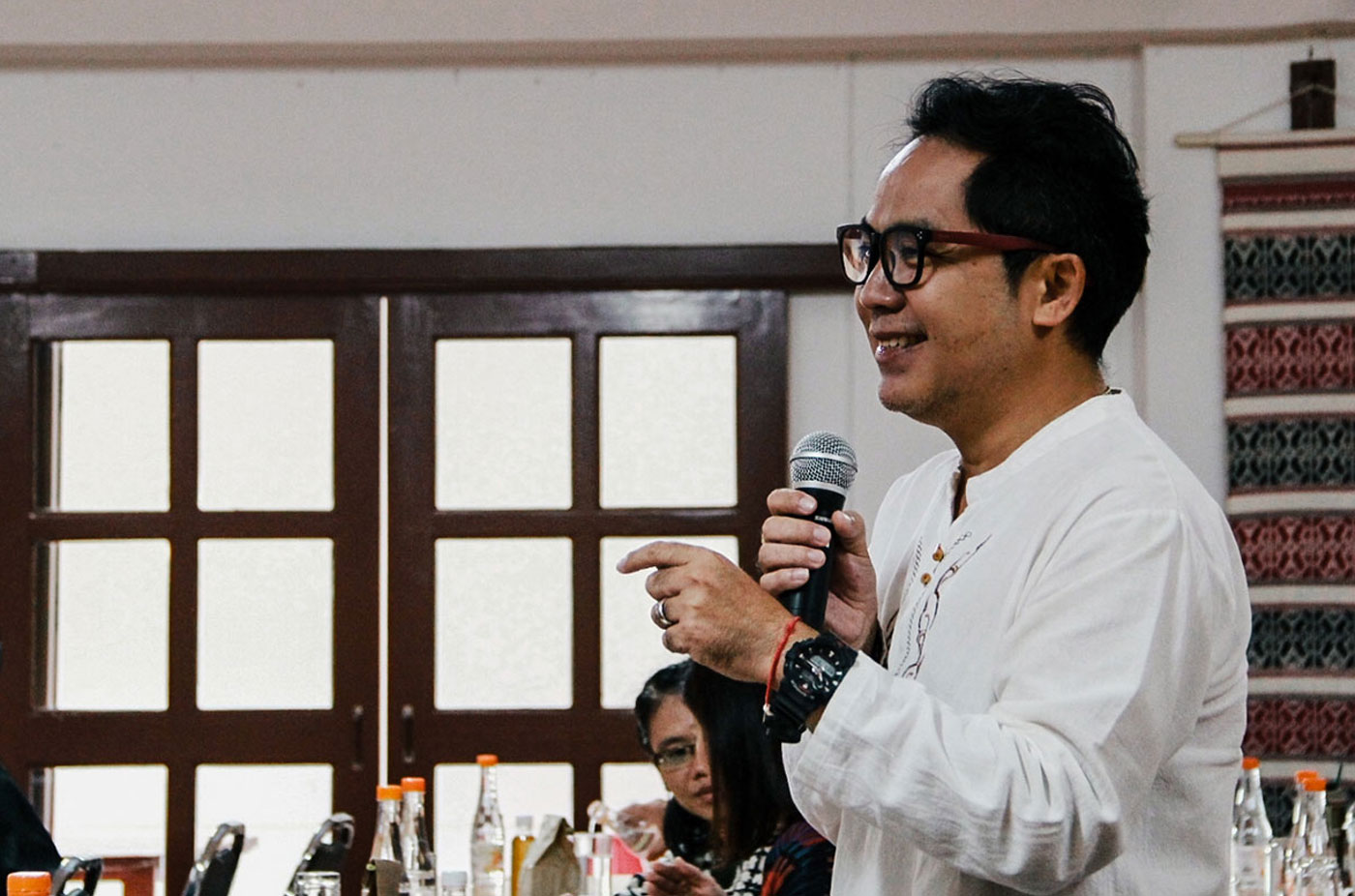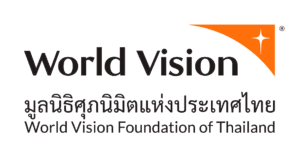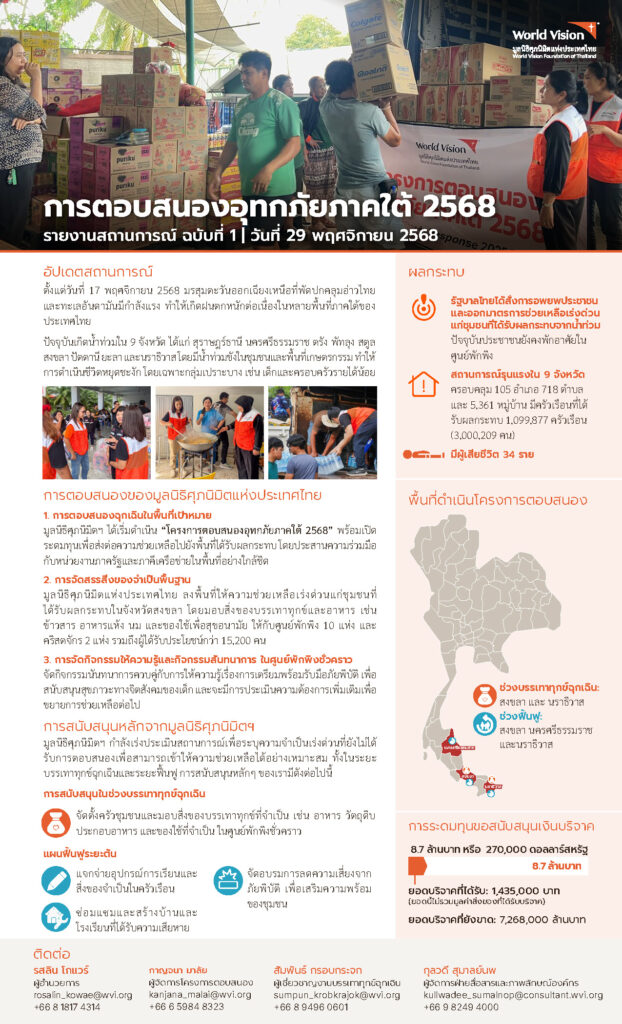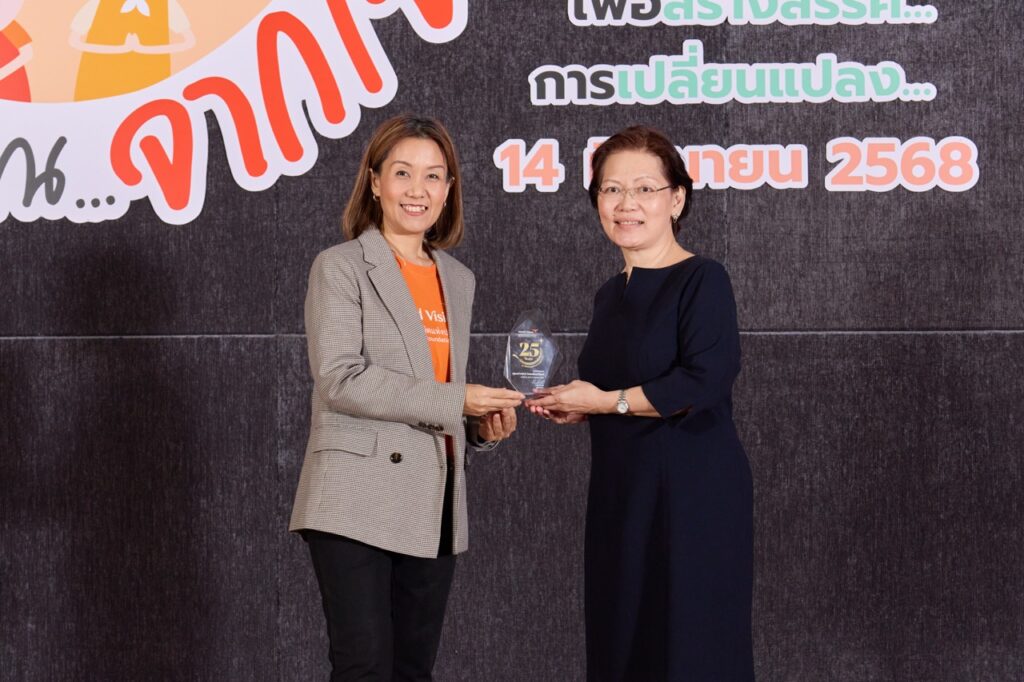
We fight against human trafficking.
“A young Shan girl from Myanmar was lured into sex trafficking at the tender age of seven and endured this ordeal until she was 25. Torn away from her home and family as a child, her memories of her parents and their home are now faint and distant. She had given up hope of ever reuniting with them. I was a part of making it possible for this affected person to return to her family and her homeland. The image of them embracing each other, tears of joy streaming down their faces, imprinted in my mind. It is a powerful reminder of the importance of our work to combat human trafficking.”
This is the essence of the work of Tui, or Saphasakon Songsukkai, World Vision Thailand’s manager of USAID Thailand CTIP project, the initiative supported by Winrock International and USAID. He is also a member of Thailand’s Coordinated Mekong Ministerial Initiative Against Trafficking: COMMIT Process. This veteran of over two decades in the fight against human trafficking will be sharing his experience and work in ending trafficking in persons in Thailand as part of World Vision Thailand.
Beginning the fight against human trafficking… at a time when Thai society was only aware of the term ‘sex trafficking of women and children’
“I have been working with the World Vision Thailand for over 20 years. World Vision Thailand began its anti-human trafficking project in 2000 with funding from the Australian, South Korean, and Taiwanese governments. At that time, our understanding of human trafficking was limited to the sex trafficking of women and children; there was no specific law defining human trafficking. It was not until 2008 that Thailand enacted the Anti-Trafficking Persons Act BE 2551. However, we encountered cases that went beyond the sex trafficking of women and children, and we worked to provide assistance, prevention, and solutions. Our initial work focused on Mae Sai District, Chiang Rai Province; Mae Sot District, Tak Province; and Ranong Province. We found that preventing human trafficking cannot be done within Thailand alone. Affected people include both Thai nationals and those from neighbouring countries. Recognising that preventing human trafficking required a regional approach, we expanded our collaboration to include six countries in the Greater Mekong Subregion: Myanmar, Thailand, Laos, Cambodia, Vietnam, and China, working together to combat human trafficking.”
Theory of change: Targeting long-term goals to determine immediate actions in the fight against human trafficking.
“To effectively combat human trafficking, we need to see changes at all levels, from policy and government to laws and international agreements. Harmonising domestic and international legal frameworks related to human trafficking is crucial. However, policy changes alone are insufficient. Public awareness and education are equally important to drive meaningful change. Therefore, our anti-human trafficking efforts encompass all aspects of the issue, from end to end.”
By ‘From end to end’, Saphasakon refers to a comprehensive approach that aligns with the national strategy to counter human trafficking. This approach encompasses a wide range of activities, including prevention through public awareness campaigns; protection of affected people by providing necessary assistance and appropriate support so that they can be reintegrated into their community; prosecution of perpetrators through training and equipping law enforcement officers with the knowledge and skills necessary to identify affected people through screening and assessment processes; policy reforms to strengthen legal frameworks and law enforcement; and partnerships with various stakeholders from the government and private sectors, as well as civil society organisations, both domestically and internationally.
Building capacities for service providers
“Since 2017, we have been funded by USAID, with Winrock International as the primary recipient, to implement the USAID Thailand Counter Trafficking In Persons Project (CTIP) in four provinces: Chiang Rai, Tak, Surat Thani, and Sa Kaeo. Shifting from our previous role of directly working with at-risk groups and communities, we now focus on empowering service providers who directly assist people affected by trafficking. This includes government agencies such as the Provincial Social Development and Human Security Offices, Provincial Immigration Offices, and Labor Welfare and Protection Offices, as well as relevant agencies, civil society organisation networks and multidisciplinary teams comprising public health offices, hospitals, law enforcement, police, immigration police, non-government organisations and professionals like social workers and psychologists. Our role is to enhance the capacity of these service providers through training, workshops, and knowledge and lessons learned sharing, enabling them to provide better protection and assistance to people affected by trafficking and actively participate in developing solutions to counter human trafficking.”
Saphasakon added “World Vision Thailand has evolved into a supportive organisation, empowering various stakeholders involved in anti-human trafficking efforts. We have developed a comprehensive plan to enhance knowledge and understanding of relevant laws, regulations, and operational guidelines for multidisciplinary teams. This includes training on screening and identification of people affected by trafficking. Furthermore, we have established partnerships with educational institutions to promote legal knowledge and ensure its practical application. We also continue to focus on prevention efforts by promoting the establishment of district-level anti-human trafficking task forces in four border districts: Mae Sai, Chiang Saen, Chiang Khong, and Wiang Kaen. Working in these districts, which share borders with Myanmar and Laos, will enable us to respond more quickly and effectively to trafficking cases. We are fostering collaboration among various government agencies, including the Ministry of the Interior, Ministry of Defense, Royal Thai Police, Ministry of Public Health, Ministry of Labour, and the Ministry of Social Development and Human Security, along with civil society organisations. We also continue to advocate for policy changes. Through our development of learning briefs, people affected by trafficking and exploited migrant workers have shared their experiences at national-level forums, leading to improved access to social welfare and labour protections for migrant workers. These advancements include increased access to information, communication channels, and reporting mechanisms in their native languages (Lao, Burmese, Khmer, and others), as well as the provision of interpreters.”
The ‘Partner of Choice’ among civil society organisations that fight against human trafficking
“Currently, our anti-human trafficking efforts in Thailand are primarily guided by the National Referral Mechanism (NRM) 2022, for case management and assistance to people affected by trafficking in persons and forced labour. To enhance the capacity of service providers supporting people affected by trafficking, we are collaborating with our Mekong sub-region partners to address the discrepancies in laws, regulations, and procedures across countries. This work aims to develop a systematic Transnational Referral Mechanism (TRM). This issue requires a government-led approach. World Vision Thailand has been actively involved in this process, serving as a member of the coordinating committee. I have represented the organisation in the Coordinated Mekong Ministerial Initiative Against Trafficking (COMMIT Process) meetings and served as a committee member. At the provincial level, CTIP project is also facilitating cross-border cooperation between Chiang Rai and the Bokeo Province of Laos, as well as between Sa Kaeo and Poipet of Cambodia. We prioritise developing the capacity of labour inspectors to effectively identify people affected by labour exploitation, particularly those falling under Section 6/1. This enhanced identification will allow for better protection of affected people and harsher penalties for perpetrators. We support the effectiveness of shelters for people affected by trafficking, including addressing the issue of scammers and call centre gangs, posing a significant challenge related to forced criminality. World Vision Thailand, in collaboration with Mae Fah Luang University and Chiang Rai Rajabhat University, has conducted a study on the trafficking of Thai individuals to neighbouring Mekong countries for criminal activities. This research focuses on cases involving affected people who were lured to Cambodia and Laos, particularly those with education and proficiency in English or Chinese. Not only will the research findings contribute to policy development, but they will also be used to drive prevention efforts through public awareness campaigns about human trafficking.”
Despite the various challenges and evolving nature of human trafficking, the fight against this crime requires a united effort from multiple sectors. For World Vision Thailand, the ministry to combat human trafficking continues, led by Saphasakon Songsukkai, the core driver of the initiative.


